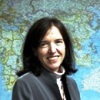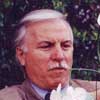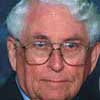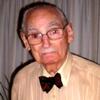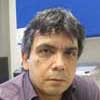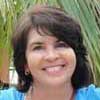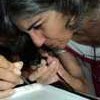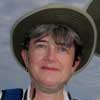
 NUESTROS COLABORADORES
NUESTROS COLABORADORES
Estas personas y muchas otras han colaborado con el desarrollo de CIDEIM, ¡Conócelas!
!Queremos ampliar nuestros registros! ¿Tienes más información de nuestros colaboradores ? Haz click aquí
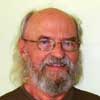
David McMurray
Se desempeña como profesor en el College of Medicine, Texas A&M University System Health Science Center. Entre 1972 y 1976 estuvo en CIDEIM implementando un laboratorio de inmunología como Postdoctoral Fellow de la Universidad de Tulane. Ha seguido visitando CIDEIM en diversas ocasiones.
TESTIMONIO
“CIDEIM has been responsible for supporting cutting-edge research on diseases of critical importance to Colombia. The strength of the organization has always been to bring together world-class scientists from Colombia and abroad to focus their talents on finding solutions to health problems in the country.
Because Colombia is a high-burden country for some tropical diseases, CIDEIM has been in a position to contribute to a better understanding of diseases which impact other parts of the world (e.g., leishmaniasis), thus, contributing to the global struggle against these diseases. In addition to contributing to the understanding and control of diseases, CIDEIM has made major contributions to the training of the next generation of Colombian researchers and health care professionals.
During my time at CIDEIM I was so impressed by the dedication of Colombian pediatricians who worked tirelessly under very challenging circumstances to provide health care, especially to marginalized segments of society. To this day, I have great respect and admiration for their efforts. In addition, they were wonderful scientific colleagues and good friends.
In addition to the stimulating research environment, my time in Cali was a period of intense personal growth for me. Once my Spanish improved, I became almost completely familiar with the culture and felt very much at home in that environment. Colombia was a relatively peaceful place in the early 70′s, which allowed me to spend much of my free time in the mountains and in the jungles along the Pacific coast. Those camping trips to unbelievably beautiful, unspoiled, remote places are among my fondest memories of my time there.
My time in Colombia had a profound impact on my personal and professional life. My interest in international research and public health problems in the developing world was strengthened by my experiences at ICMR. I went on to develop a career working on tuberculosis and have spent a lot of time in high-burden countries in the past 35 years. I worked as a consultant to WHO for 10 years and was associated with other international research organizations. I believe that it is fair to say that my enthusiasm for working overseas was reinforced by my very positive experience in Cali. My research on childhood malnutrition led me to become much more involved in nutrition in my academic and research career. I was supported for many years by NIH to examine the impact of malnutrition in an animal model of pulmonary tuberculosis. I was a founding member and later served as Chair of the Intercollegiate Faculty of Nutrition here at Texas A&M University. I can honestly say that my involvement in nutrition was a direct result of my experiences in Cali. Personally, my knowledge of Latin American culture and fluent Spanish have allowed me to interact very effectively with Hispanic students and colleagues here in Texas”.
FUTURO
“I would really like to see CIDEIM survive and thrive. I believe that it provides tremendous value for the investment, both in terms of improved understanding of important tropical diseases and as a training site for young Colombians. CIDEIM has always promoted good will between the scientific community in Colombia and abroad, a tremendous benefit which cannot be measured in pesos. I would like to see CIDEIM continue to play to its strengths as a center for biomedical research on diseases of importance to Colombia and as a training center. It really deserves continued support from both national and international funding agencies. Perhaps with the current emphasis on translational research, perhaps CIDEIM could morph into a quasi-biotech organization which includes in its portfolio pre-clinical development activities for novel diagnostic tests, drugs and vaccines”.
